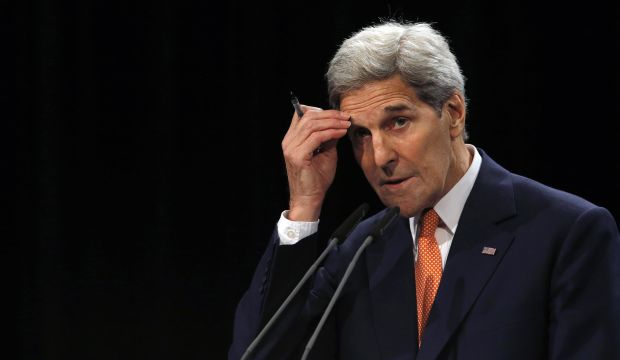As one Saudi official recently told Reuters, it would be “a happy day” for the Middle East if the nuclear deal stopped Iran gaining a nuclear arsenal. After all, no one in the region and the world will reject the deal if it succeeds in “freezing” Iran’s military nuclear program. This indeed seemed to be the case based on the details of the deal announced on Tuesday after Tehran agreed to the majority of the conditions it had previously opposed, intransigence which lead to the years-long imposition of sanctions on its economy and a freeze on its assets. The deal has increased the so-called “breakout time”—time it would take Iran to enrich enough uranium to build a nuclear weapon—to at least one year from two to three months. Although it has not thwarted Iran’s nuclear ambitions, the deal would keep Tehran under international supervision to make sure it is incapable of manufacturing nuclear weapons.
The question remains, however, whether it is a good or a bad deal. In my opinion, it is a wonderful deal for the administration of US President Barack Obama, who has long fought to conclude his second term in office with a final deal with Iran. Obama even threatened the US Congress on Tuesday to veto its rejection if it decided to disapprove the deal. It is also a good deal for the Western powers who do not wish to see the Middle East’s major powers involved in a nuclear arms race that would plunge the region into further turmoil. As for Iran, it has returned to square one: Tehran has neither achieved its goal of building its own nuclear program nor benefited from its oil boom to ease the sanctions that slowed down its economic growth. In other words, Iran has suffered the most from this deal. Iran’s propaganda machine has fabricated terms not even included in the deal, promoting it as a triumph of Iran’s foreign policy. Iran’s “fifth column” in the Gulf states would probably receive the news of the deal in the same way, cheering and welcoming the so-called Iranian “triumph.”
If the deal has limited the nuclear capabilities of Iran and forced it to bow down, at least temporarily until it catches its breath, the real concern is what it will produce and whether the Iranian regime will use it as a political card. No wise person would believe that Iran will give up its policy of destabilizing the region. Similar fears have even been voiced by senior US officials, including David Patreus, the former director of the CIA, who said that the most dangerous threat facing the region comes from the Iran-backed militias rather than from the Islamic State of Iraq and Syria (ISIS).
If we show good faith in Obama’s pledges and assurances that Iran will not be given concessions at the expense of other countries in the region, Western governments will be under great pressure to make the deal succeed and therefore turn a blind eye to many of Iran’s destabilizing policies as well as Tehran’s blatant interference in the domestic affairs of its neighbors. Moreover, the West will also have to neglect Tehran’s support of extremist militias, such as Iraq’s Popular Mobilization forces, also known as the Hashid Sha’abi, that have gradually become almost part of Iraq’s military. Iran has established a policy based on the equation of fighting terrorism with terrorism amid deafening silence from the West.
Saudi Arabia and the Gulf states can only welcome the nuclear deal, which in itself is supposed to close the gates of evil that Iran had opened in the region. However, the real concern is that the deal will open other gates of evil, gates which Iran mastered knocking at for years even while Western sanctions were still in place.
